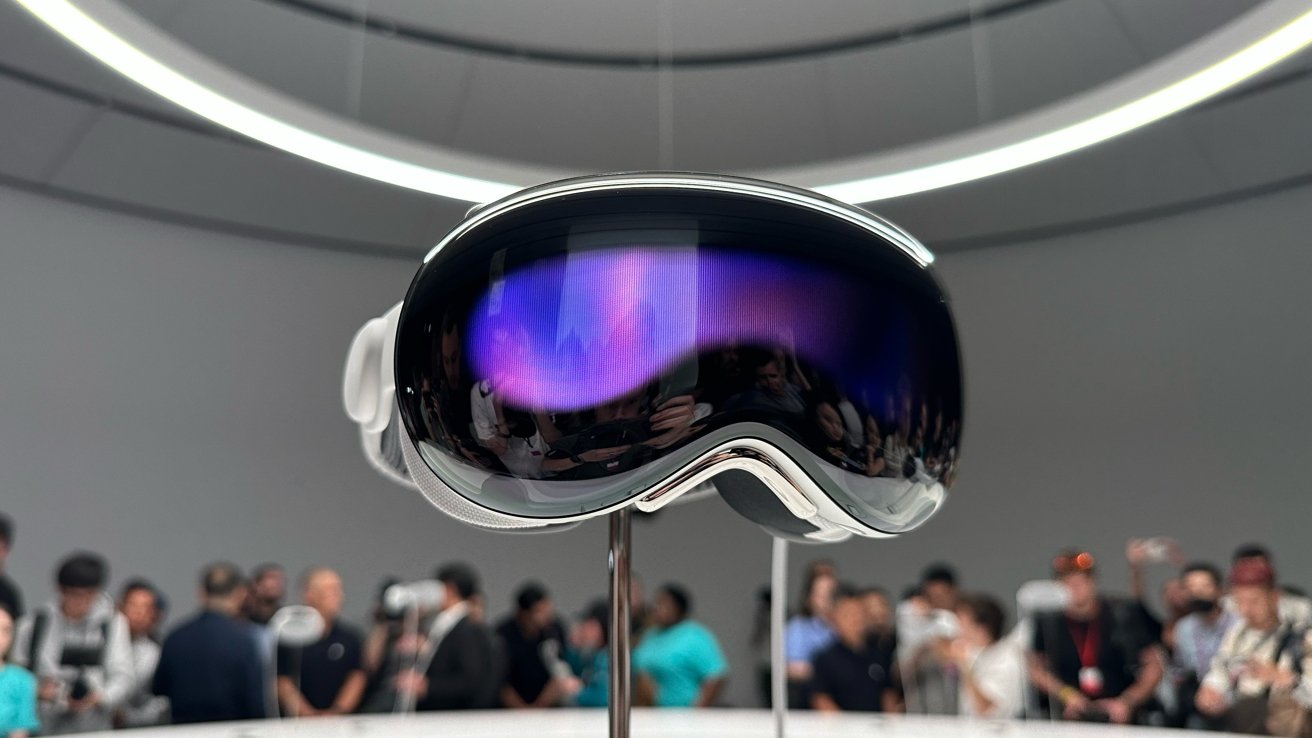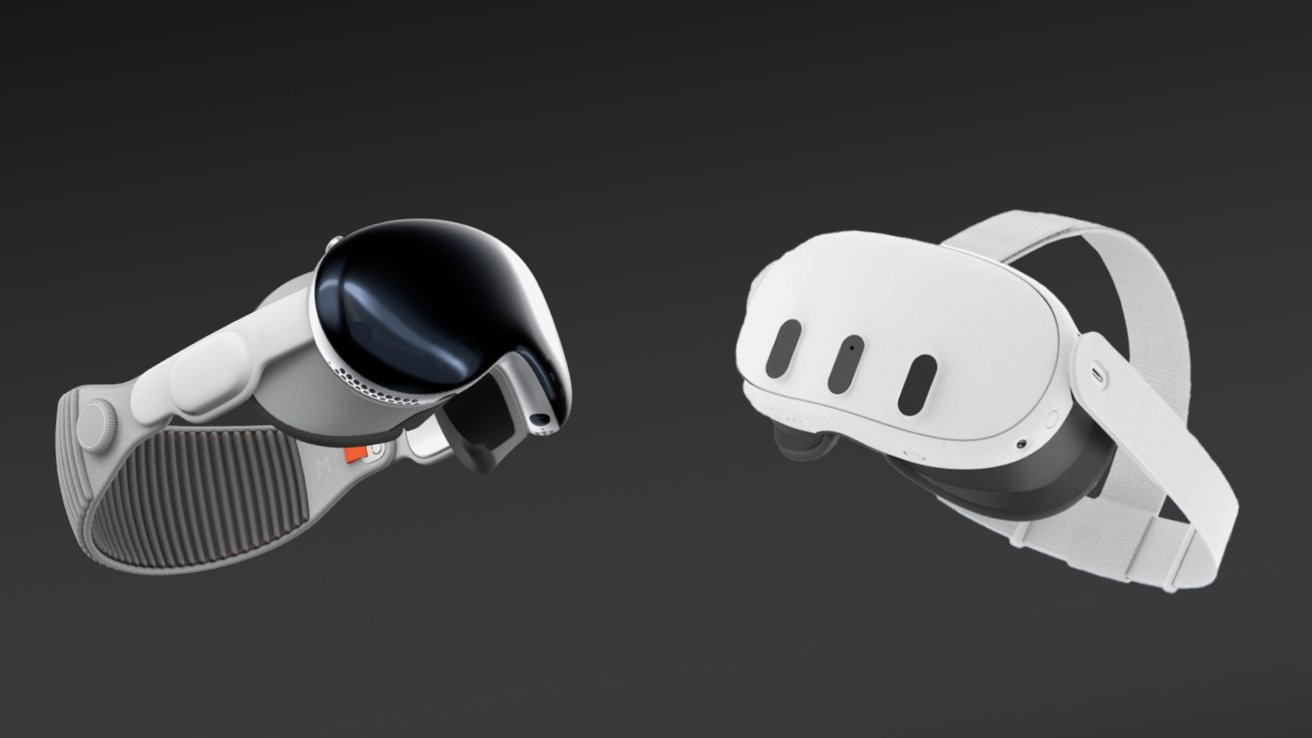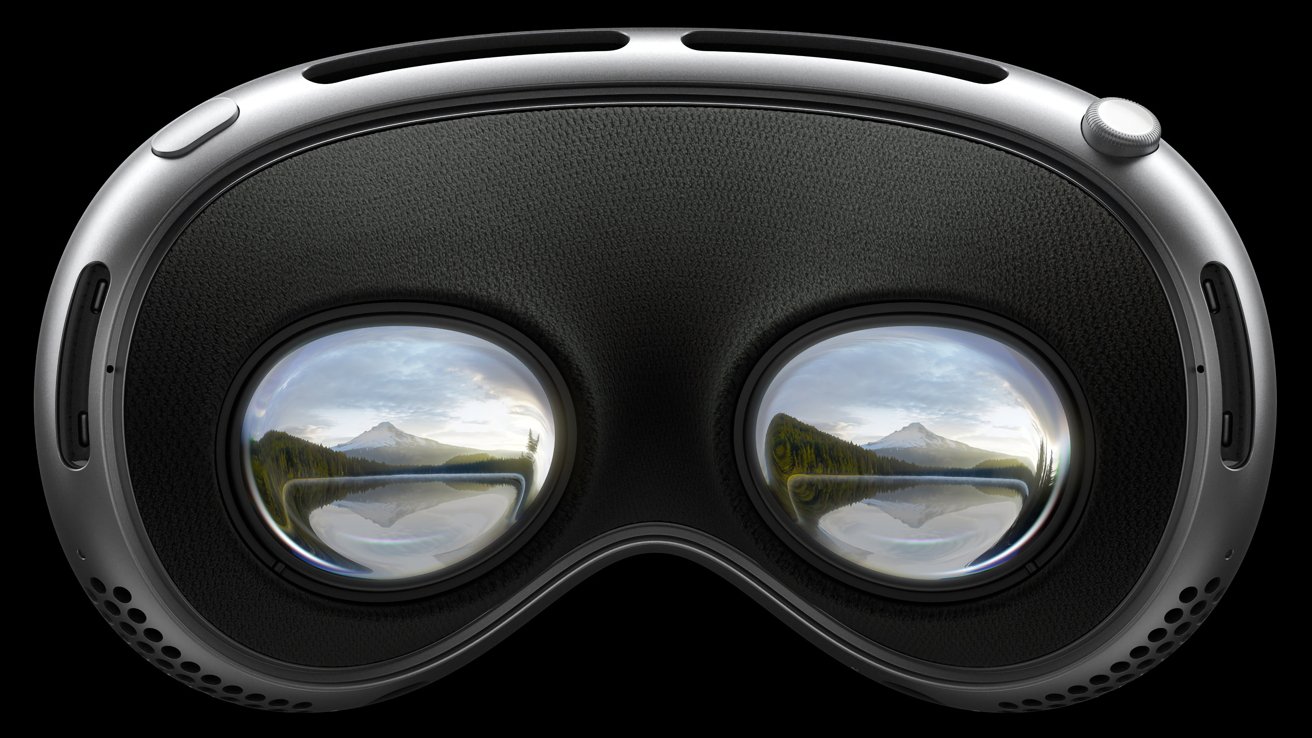Your brain may have a hard time adjusting to wearing and taking off Apple Vision Pro
A Stanford study of extended use of headsets like Apple Vision Pro shows that users could encounter real-world aftereffects like depth perception issues or simulator sickness.

Apple Vision Pro
Spatial computing is Apple's self-chosen buzzword for wearable computers with passthrough capabilities. The newness of this technology means there is little information about the health implications of using such tools, but researchers are on the job.
According to a research paper published by Stanford's Virtual Human Interaction Lab, VR headsets that rely on passthrough like Meta Quest 3 and Apple Vision Pro could have psychological implications for users. While the research is meant to be more of a guideline for building the foundations of future research in the field, the results indicate users should be cautious when using these products for extended periods.
The research was performed and written by 11 people of varying ethnicities and genders. Each has extensive backgrounds in research and work with passthrough headsets.
The researchers had experience with many existing headsets, including Apple's unreleased Apple Vision Pro. However, the research and results appear to be primarily derived from using Meta Quest 3 headsets and other products -- not Apple Vision Pro.
Real vs virtual
Product specs like field of view, pixels per degree, and refresh rate can affect how the wearer sees the world, thus affecting how amplified the effects of distortion can be. The Meta Quest 3 models used in testing, as shown in the video above, saw incredible issues with distortion, especially when objects were held near the headset's cameras.

Apple Vision Pro and Meta Quest 3
Distortion, lack of field of view, poor contrast, and other effects can lead to the brain's cognitive dissonance between what's in the headset and what's real. Wearing a VR headset for long periods and then attempting to walk normally or perform tasks may prove difficult.
The Meta Quest 3 has a 110-degree field of view and a PPD of 18. The research paper says Apple Vision Pro has improved on the problematic features versus Meta Quest 3, but there's still room for improvement.
Various unconfirmed estimations about Apple Vision Pro's specs have been made, placing it at a 100-degree- to 110-degree field of view and a PPD of approximately 34. Apple doesn't publish these specific ratings of its hardware, and these numbers are something that will be determined once the Apple Vision Pro is in people's hands.
Comparing these specs to the typical human with two eyes and 20/20 vision, you see the disparity between virtual and real. Humans have an effective PPD of 60 and 220 degrees of view.
Specs aren't the only problem since algorithms are used to stitch images together for viewing on displays. When an object like a hand passes in front of the cameras, blocking an object, distortion around the moving hand can cause edges to curve and blur like a funhouse mirror.
The research points out that wearers of the Meta Quest 3 ran into issues when judging distance, viewing moving objects, or moving with the headset on. Examples include users having trouble eating, giving high-fives, or drawing with a headset on.
This contrasts slightly with information provided in Apple Vision Pro reviews we've seen so far, so these problems may be less pronounced for Apple's product. For example, MKBHD could play ping pong easily, or Joanna Stern cooked, ate, and drank wine with Apple Vision Pro on.
Brain training
Since viewing the world through a headset differs from viewing it through the naked eye, your brain adapts. This adaptation means using a headset gets easier over time since the brain learns to compensate for distortions, distance judgment, and other issues.

Seeing the world through Apple Vision Pro isn't healthy
However, that's not necessarily good unless you plan to wear a headset perpetually. If your brain has adjusted to react to things while viewing the world through a headset, you'll find your brain is still compensating even with the headset off, at least for a time.
If you've ever worn "drunk goggles," you may have experienced a similar phenomenon. Wearing those distorting glasses for more than a couple of minutes will give your brain time to adjust, but taking the drunk goggles off will suddenly make you go off balance.
Alternatively, imagine you've been at sea for a few months, gaining your "sea legs." When you walk off the ship onto land for the first time, you'll look very silly lifting your legs too high and waiting for the ground to rise and meet your stride -- ask me how I know.
The human brain is awfully good at adaptation, which could be a problem for headset wearers. The long-term effects of such physiological phenomena are unknown, so proceeding with caution is necessary.
There's also socialization issues and how isolating a headset is, even with passthrough. Talking to a person through a display will never be psychologically the same as talking to one in person.
The full paper is an interesting read as we approach the Apple Vision Pro launch. It is available to purchase on Friday, February 2.
Read on AppleInsider


Comments
Reminds me how there was no mass coverage about tracker based stalking before AirTags were released, even if it was a thing for years…
(Which is why I clicked it.)
Article CONTENT: "However, the research and results appear to be primarily derived from using Meta Quest 3 headsets and other products — not Apple Vision Pro."
And this: "The research points out that wearers of the Meta Quest 3 ran into issues... these problems may be less pronounced for Apple's product."
What the heck?
More Objective TITLE: "Does Apple Vision Pro beat competing headsets when it comes to adverse effects on cognition?"
Thanks for the news from over a decade ago, Stanford.
Jumping Jehoshaphat